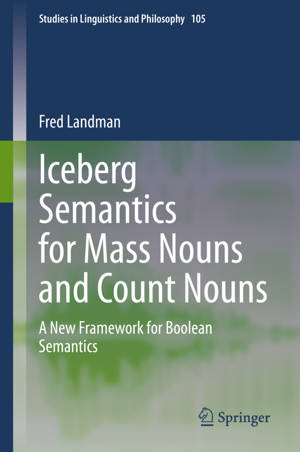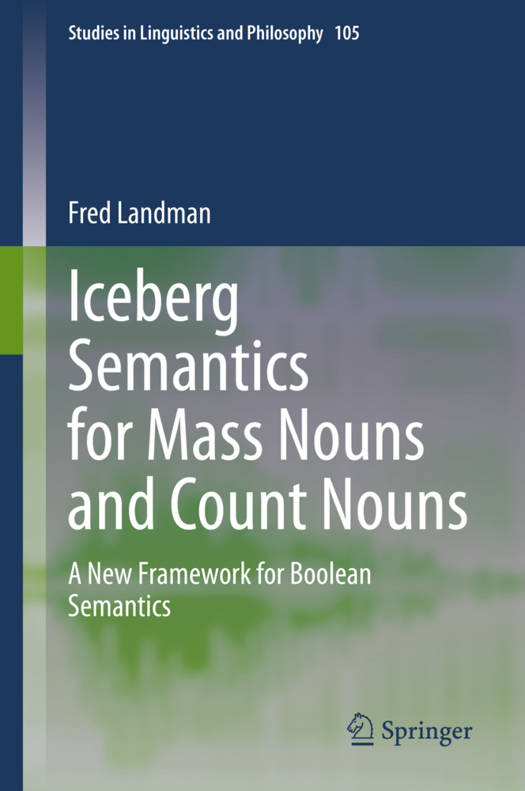
- Afhalen na 1 uur in een winkel met voorraad
- Gratis thuislevering in België vanaf € 30
- Ruim aanbod met 7 miljoen producten
- Afhalen na 1 uur in een winkel met voorraad
- Gratis thuislevering in België vanaf € 30
- Ruim aanbod met 7 miljoen producten
Zoeken
€ 105,45
+ 210 punten
Uitvoering
Omschrijving
Iceberg semantics is a new framework of Boolean semantics for mass nouns and count nouns in which the interpretation of a noun phrase rises up from a generating base and floats with its base on its Boolean part set, like an iceberg. The framework is shown to preserve the attractive features of classical Boolean semantics for count nouns; the book argues that Iceberg semantics forms a much better framework for studying mass nouns than the classical theory does.
Iceberg semantics uses its notion of base to develop a semantic theory of the differences between mass nouns and count nouns and between different types of mass nouns, in particular between prototypical mass nouns (here called mess mass nouns) like water and mud versus object mass nouns (here called neat mass nouns) like poultry and pottery. The book shows in detail how and why neat mass nouns pattern semantically both with mess mass nouns and with count nouns.
Iceberg semantics is a compositional theory and in Iceberg semantics the semantic distinctions defined apply to noun phrases of any complexity. The book studies in depth the semantics of classifier noun phrases (like three glasses of wine) and measure noun phrases (like three liters of wine). The classical wisdom is that classifier interpretations are count. Recent literature has argued compellingly that measure interpretations are mass. The book shows that both connections follow from the basic architecture of Iceberg semantics.
Audience: Scholars and students in linguistics - in particular semantics, pragmatics, computational linguistics and syntax - and neighbouring disciplines like logic, philosophy of language, and cognitive science.
Specificaties
Betrokkenen
- Auteur(s):
- Uitgeverij:
Inhoud
- Aantal bladzijden:
- 381
- Taal:
- Engels
- Reeks:
- Reeksnummer:
- nr. 105
Eigenschappen
- Productcode (EAN):
- 9783030427108
- Verschijningsdatum:
- 31/07/2020
- Uitvoering:
- Hardcover
- Formaat:
- Genaaid
- Afmetingen:
- 156 mm x 234 mm
- Gewicht:
- 730 g

Alleen bij Standaard Boekhandel
+ 210 punten op je klantenkaart van Standaard Boekhandel
Beoordelingen
We publiceren alleen reviews die voldoen aan de voorwaarden voor reviews. Bekijk onze voorwaarden voor reviews.











